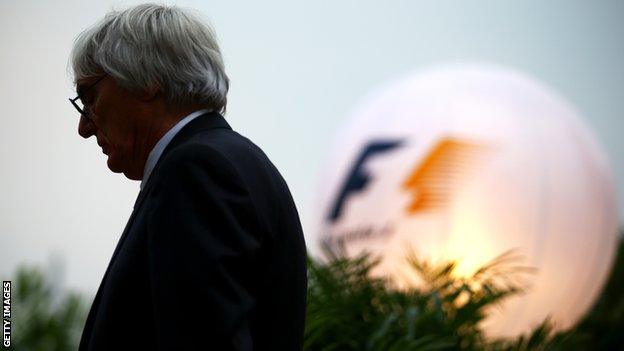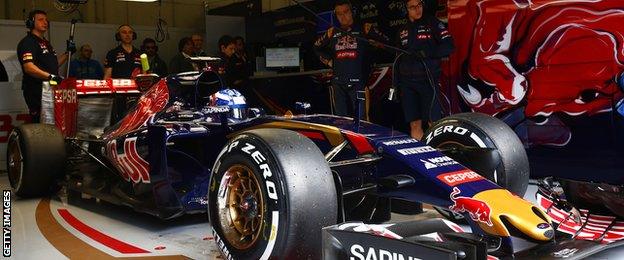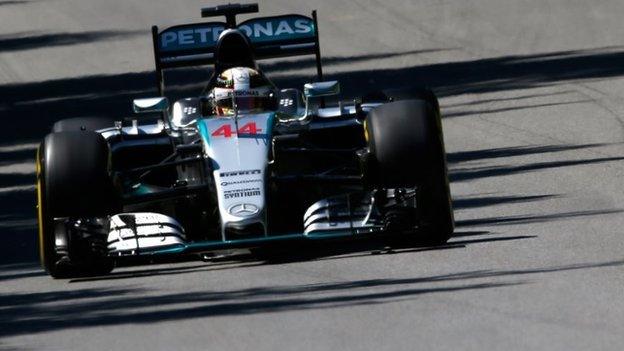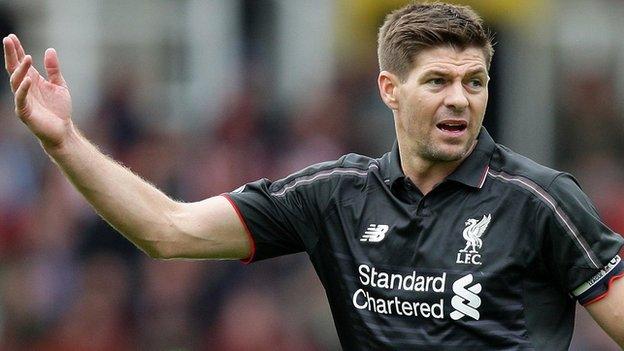Formula 1 takeover 'won't change' Bernie Ecclestone role
- Published

Bernie Ecclestone has been in charge of F1 since 1978
Former FIA president Max Mosley says Formula 1 chief executive Bernie Ecclestone's role "won't change" if a takeover of the sport is completed.
Miami Dolphins owner Stephen Ross is working with investors from Qatar to buy a stake in the sport.
"He is very amazing, the way he keeps going. Most of us at a certain age get tired," Mosley, 75, told Radio 5 live.
F1 owners CVC Capital Partners and Ross's RSE Ventures have had talks but no formal offer has yet been made.
Negotiations are at an early stage and the group is just one of a number of potential bidders interested in a potential takeover of the motorsport series.
Ecclestone, 84, has been in charge of the sport since 1978 and Mosley feels he will continue in his role even if the ownership changes.
"He is the person who has managed to sell it [F1] everywhere," said Mosley. "I am sure CVC have had thoughts about an 84-year-old chief executive. There is nobody else who does the job as well.
"I said to him the other day: 'Don't you feel tired in the afternoons?' He said that the phone calls come in and the emails come in and that gets adrenaline going.
"He's very interested in what he does and does it very well. Age tends to be flexible."
'Smaller teams needs technical freedom'

Red Bull have threatened to pull out of F1 because of engine supplier Renault's lack of competitiveness
Former F1 driver Mark Webber recently said the sport is "not in great shape", while Red Bull team boss Christian Horner said an independent adviser could help improve F1.
However, despite the criticisms, world champion Lewis Hamilton said he still feels "massively challenged every weekend".
Mosley says the competitiveness needs to be brought back into the sport.
"You want the best players racing as fast as they can," he said. "You don't want drivers thinking about fuel consumption or tyres.
"There have been a few strategic errors. The fundamental thing is that it has become so expensive you can spend what you want.
"The two or threes teams at the top spend what they want, then the ones at the bottom struggle. That interferes with the grid. You need to make the small teams competitive.
"The way to solve the problem is to tell the smaller team you can have more technical freedom but you work in a cost cut. It needs a fairly determined attack on the current structure."
- Attribution
- Published24 June 2015

- Published14 June 2015
- Published24 June 2015

- Published24 June 2015

- Published18 December 2015

- Published2 November 2018

- Published26 February 2019
